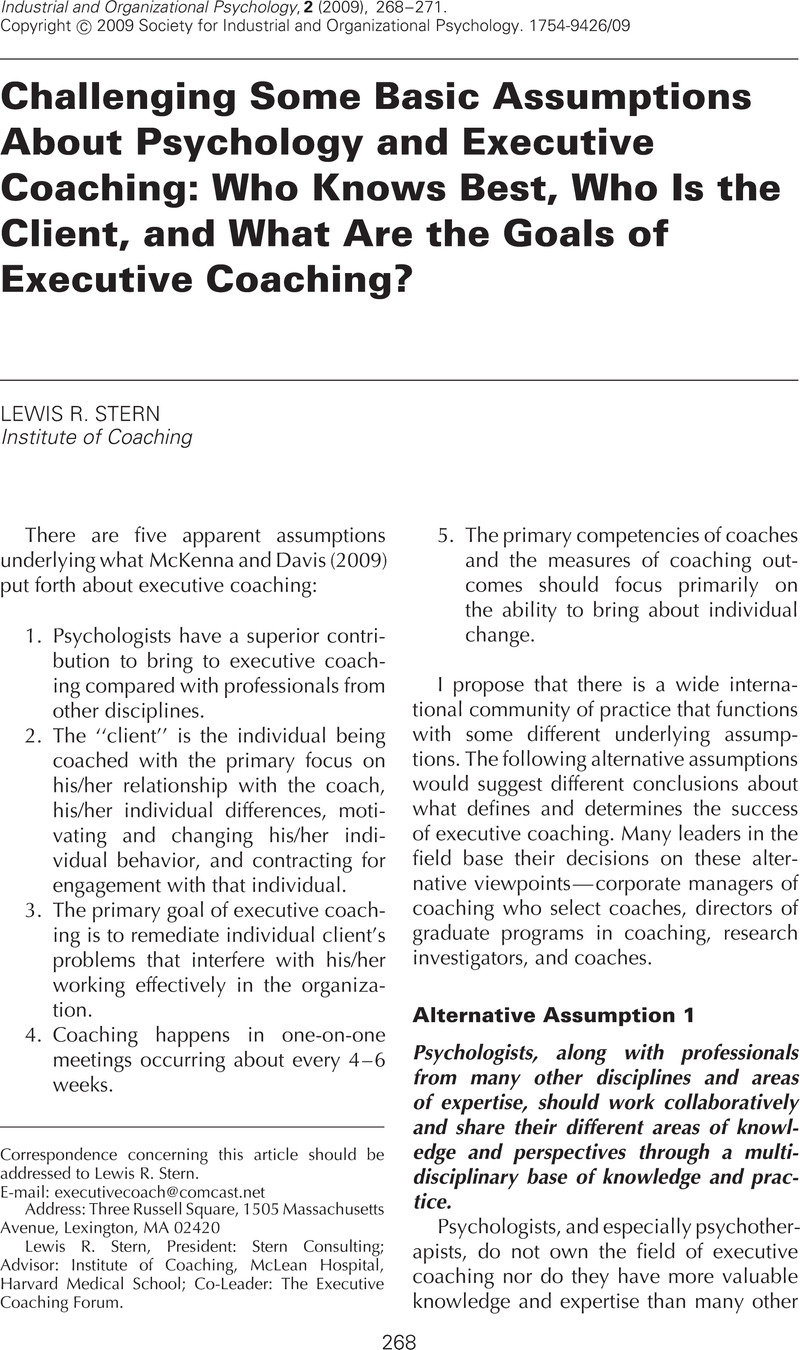Crossref Citations
This article has been cited by the following publications. This list is generated based on data provided by Crossref.
McKenna, D. Douglas
and
Davis, Sandra L.
2009.
What Is the Active Ingredients Equation for Success in Executive Coaching?.
Industrial and Organizational Psychology,
Vol. 2,
Issue. 3,
p.
297.
Lee, Robert J.
2012.
The Wiley‐Blackwell Handbook of the Psychology of Coaching and Mentoring.
p.
40.
Grant, Anthony M.
2012.
An integrated model of goal-focused coaching: An evidence-based framework for teaching and practice.
International Coaching Psychology Review,
Vol. 7,
Issue. 2,
p.
146.
Grant, Anthony M.
2020.
Coaching Researched.
p.
115.
Hinse, Eliane
and
Mathieu, Cynthia
2022.
Le coaching de gestion et la satisfaction au travail ; liens entre le coaching, le leadership et la satisfaction au travail.
Gestion 2000,
Vol. Volume 38,
Issue. 6,
p.
165.





